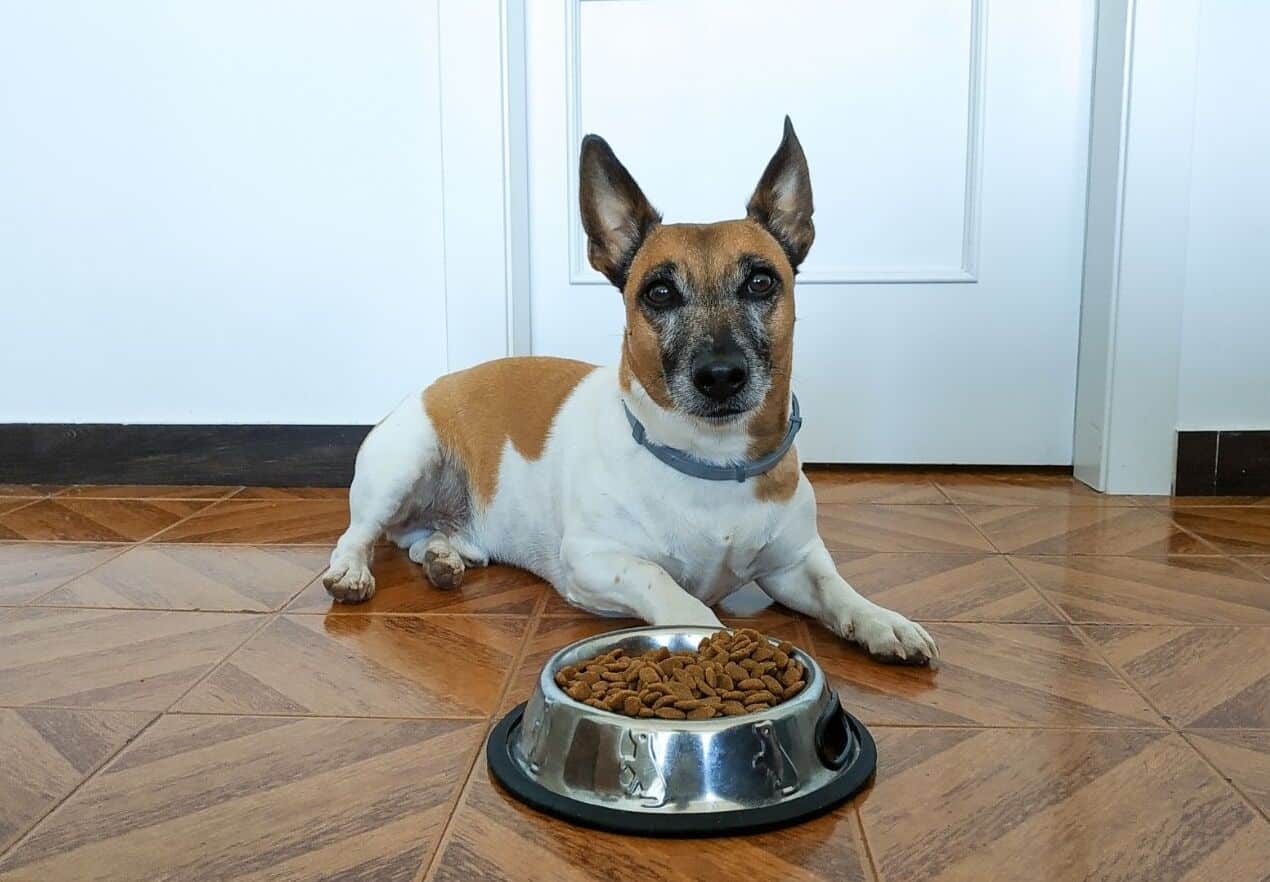Nesting behavior in dogs is more common than you think, and it doesn’t only occur when pups are pregnant. Actually, there are several reasons why a dog might want to nest.
First of all, what is nesting?
Nesting usually takes place when dogs are pregnant, and it consists of creating a safe space for their litter. How will your dog do that? By obsessively digging in closets, burrowing into small places, dragging and tearing everything she finds appropriate for her future puppies to spend their first couple of days.
When a dog is pregnant, you will notice she’ll experience some major body changes like weight gain, an increase in nipple sizes, and hormonal changes.
Among other things, hormones will make her more protective, and thus, she will start creating a nest to protect her offspring from future threats. She will make sure this nest is as warm, cozy, and safe as possible, so don’t be surprised if she acts aggressively towards those who may come near the nest. You can read more about these changes in our blog about Pregnancy In Dogs.
However, this is not the only cause of nesting behavior in dogs. A dog doesn’t necessarily have to be pregnant in order to experience nesting behavior.
Nesting behavior in dogs
Why is my dog nesting?
- Comfortability: Naturally, nests are super cozy, so comfort would be a fair reason for your dog to make a nest, or have a nesting behavior. However, we should not confuse burrowing under a warm blanket in winter, or tearing a cushion up due to anxiety, with nesting. It’s not the same. Remember dogs enjoy cuddling and may even have safety blankets to sleep.
- Change of environment: The nesting ritual may intensify if your dog is experiencing any sudden change. It can be a moving, the arrival of a baby, or of a new furry member. These stressful situations can make your pup nest in order to look for comfort, so make sure to keep his regular toys, blankets and bed near since they find familiar objects reassuring.
- False/psychological pregnancy: This is one of the most common causes of nesting behavior in dogs when they are spayed. Psychological pregnancy does exist, and it’s usually a symptom of an underlying disease. Nesting behavior will often be accompanied by lethargy, reluctance to exercise, enlargement of her mammary glands (which may or may not include milk production), and even false labor. Phantom pregnancies tend to last between 2 weeks and 2 months and are usually treated with anxiety relievers, and diuretics to reduce milk production and liquid retention.

- Hypothyroidism: This is one of the main conditions that can lead to psychological pregnancies. The working deficiency of the thyroid hormone can cause your dog to have erratic estrus cycles, and this can lead to a phantom pregnancy. If you notice your dog is having symptoms of hypothyroidism (such as weight gain, phantom pregnancy, lethargy, intolerance to cold, hair thinning, or loss), it is very important to take him/her to the vet. Even though hypothyroidism can’t be cured, it can be easily treated with thyroid hormone replacement therapy.
- Injuries: When dogs are hurt or feel under the weather, they don’t want to be disturbed. It’s typical of dogs to nest when they are injured in order to recover properly. Besides, they will find in nesting a safe environment to rest. Pay special attention if your dog has a fever, if she/he is reluctant to eat, or if he/she is lethargic.
- Other underlying health conditions: Hypothyroidism is not the only health condition that can cause nesting behavior in dogs: Mastitis, liver dysfunction, and anxiety can also be the source of this behavior.

If your dog is nesting…
Take her to a veterinarian. Even though it’s not a dangerous behavior in itself, as we’ve already mentioned, it can be a symptom of an underlying disease. The vet will run some tests or an abdominal ultrasound if needed and will tell you how to go on from there.
Stay away from her nest. Dogs will keep her nest super clean and tidy, so there is no need for you to come close or clean the nest. Remember dogs can get aggressive if so.
Don't show her more attention. If your dog realizes that you are showing interest in what she is doing, she will keep doing it to try to get your attention. The best thing you can do is mind your own things and try to give her some space: she will eventually grow out of it.





